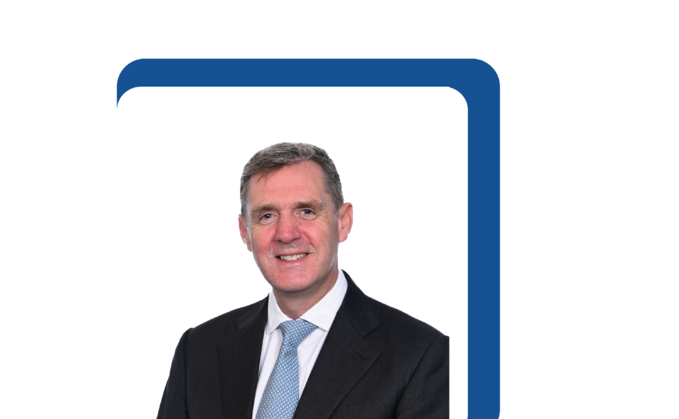
Duncan Goodwin, fund manager of the Premier Miton Global Sustainable Growth fund explains why he believes that we are at a pivotal moment in markets, with a change in trend requiring a distinctly different approach.
For information purposes only. The views and opinions expressed here are those of the author at the time of writing and can change; they may not represent the views of Premier Miton and should not be taken as statements of fact, nor should they be relied upon for making investment decisions.
What do you get if you put 400 economists in a room?
The US Federal Reserve employs over 400 PhD economists, tasked with predicting the economic impact of monetary policy. During the COVID-19 pandemic, the world's most important central bank opened monetary floodgates; interest rates were rapidly reduced and quantitative easing went into overdrive. The resulting inflation would be short-term, limited and transitory it was promised, but it didn't quite work out like that. Instead, we've had the most sustained and severe period of inflation in decades and the Federal Reserve has been forced into an about face, sending US interest rates from near zero to 4.5% in just one year.
The moral of the story? It is hard, maybe impossible, to make accurate, exact predictions about the future. This is particularly true as we move from a regime of easy money through low interest rates and relative geopolitical stability, into an era of inflation, higher interest rates and renewed international rivalries.
Fund portfolios built on specific macroeconomic predictions are vulnerable. In a more uncertain world, we believe that to find long-term, sustainable investment opportunities, it is better to be broadly correct, rather than, like the 400 economists, exactly wrong. Maybe forecasting should be best left to weather people?
Embracing the megatrends
We invest thematically, by first attempting to identify key, broad megatrends that are impacting global society right now, even if we cannot predict the exact course of future events. They are: economic and social mobility, climate change, un-met healthcare needs and changing demographics.
- Economic and social mobility: Inequality within society remains a major problem. Education is key to economic development, particularly in emerging markets.
- Climate change: manufactured CO2 emissions are resulting in rising global temperatures. Governments will need to limit these emissions and they will deploy capital to that aim.
- Un-met healthcare needs: In many countries, populations are ageing. People are living longer than ever before, leading to a rise in certain illnesses. Simultaneously, the ratio of young to old is falling, and the cost of healthcare will take an increasing share of national income.
- Changing demographics: the global population is set to rise by 2bn people over the next 30 years. We will need to be more efficient with the resources that are available, particularly with respect to food and agriculture.
From these megatrends we attempt to identify investment themes and companies that can help solve these issues. The result with the Premier Miton Global Sustainable Growth Fund is a portfolio that differs markedly from a global equity index like the FTSE All-World Index. But in a world of regime change, we are not afraid to stand out from the crowd.
New trends, new thinking required
Global equity indices are dominated by large technology companies, called FAANGs, an abbreviation based on the names of their major constituents (Facebook, Apple, Alphabet, Netflix, Google). But while these are solid companies that have managed to grow over the previous decade, we're not sure they will meet the needs of society over the decades to come. Furthermore, it is a lesson from history that things change and the next decade may well not look like the one just gone.
A look at the largest companies in the world in 2007, through the FTSE All-World Index, sees Exxon Mobil and General Electric top the list. HSBC and AT&T also make the top ten. Of the current technology giants, only Microsoft is noticeable with today's online behemoth Amazon languishing in 407th place.
We believe in the benefits of diversification, something that indices, now dominated by large US technology companies, do not easily provide. Furthermore, there is a breadth of smaller companies, with exceptional promise that simply do not make it into a benchmark. These ‘disruptors' often bring new capabilities and the potential to upend existing markets if they succeed. To top it off, with indices, valuation is not a consideration; if a highly valued unprofitable technology company is big enough, then it is in the index and when you buy that index, you will own some of that business.
The lesson is that simply buying and holding an index during a time of regime change may not necessarily be as fruitful as it was during the period of the historically low interest rates we saw from 2008 onwards. The companies that won in one decade, may not in the next.
Divergent evolution
The world is changing, and while accepting we won't be able to make accurate predictions about interest rates or the exact level of a given index in five years' time, by having the ability to diverge from the market, we can attempt to build a portfolio that can offer diversification, exposure to what we believe are market leading businesses looking to disrupt the status-quo, with a constant eye on valuation; an approach we believe fitting for the years ahead.
Risks:
The value of stock market investments will fluctuate, which will cause fund prices to fall as well as rise and investors may not get back the original amount invested.
Funds that follow a sustainable investment approach exclude companies which do not meet their responsible criteria from the investment universe and therefore can carry a higher risk than funds with a more diversified portfolio.
This fund may experience high volatility due to the composition of the portfolio or the portfolio management techniques used.
Forecasts are not reliable indicators of future returns.
Click here to learn more about Premier Miton
IMPORTANT INFORMATION:
For Investment Professionals only. No other persons should rely on the information contained within.
Whilst every effort has been made to ensure the accuracy of the information provided. We regret that we cannot accept responsibility for any omissions or errors.
The views and opinions expressed here are those of the author at the time of writing and can change; they may not represent the views of Premier Miton and should not be taken as statements of fact, nor should they be relied upon for making investment decisions.
Reference to any particular stock/ investment does not constitute a recommendation to buy or sell the stock / investment.
All data is sourced to Premier Miton unless otherwise stated.
A free, English language copy of the Prospectus, Key Investor Information Document and Supplementary Information Document are available on the Premier Miton website, or copies can be requested by calling 0333 456 4560 or emailing [email protected].
Financial promotion issued by Premier Portfolio Managers Limited (registered in England no. 01235867), authorised and regulated by the Financial Conduct Authority, a member of the Premier Miton Investors marketing group and a subsidiary of Premier Miton Group plc (registered in England no. 06306664). Registered office: Eastgate Court, High Street, Guildford, Surrey GU1 3DE.
009139/080223












